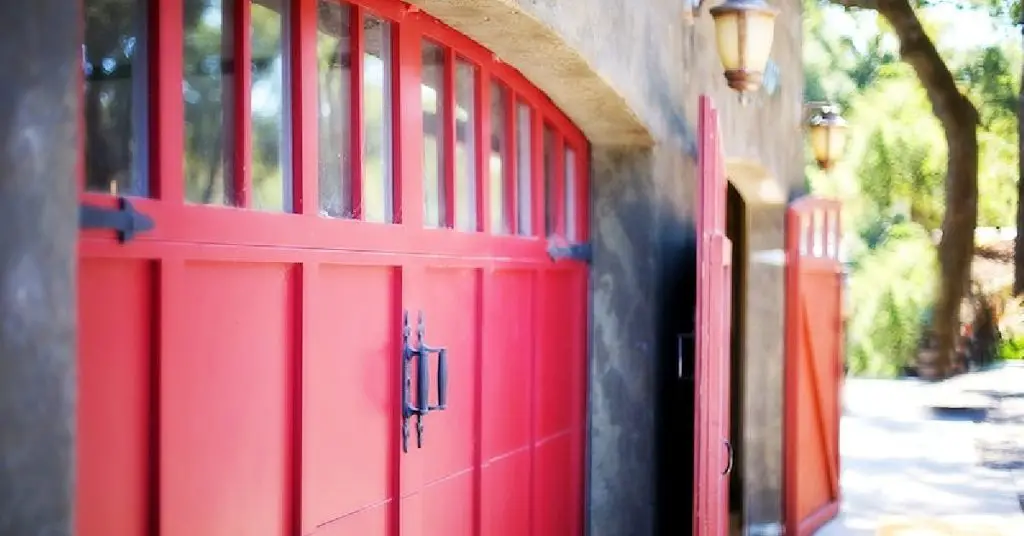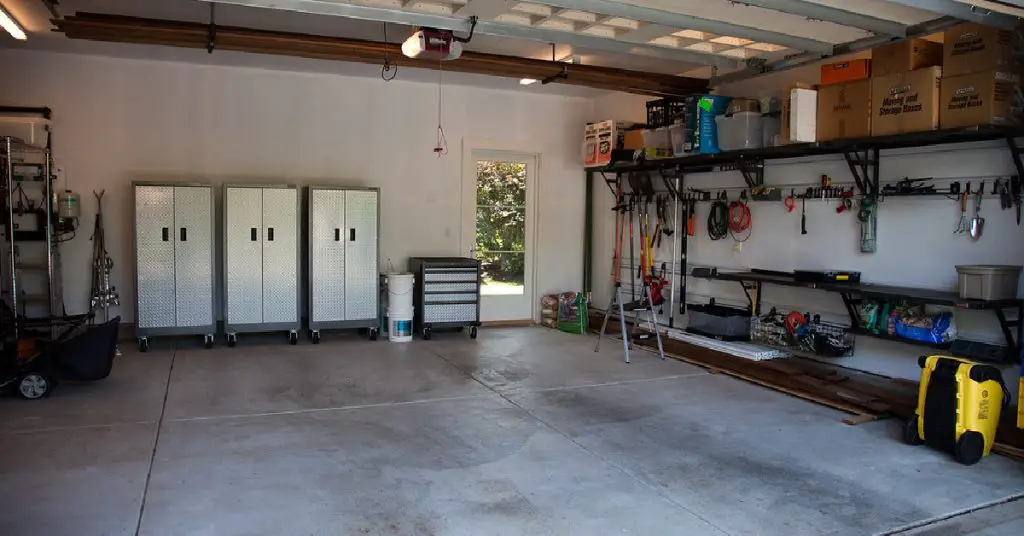Is your garage floor drain giving you grief? You’re not alone. Many homeowners face this messy problem, but don’t worry – we’ve got you covered on how to unclog a garage floor drain. Let’s roll up our sleeves and tackle this issue head-on.
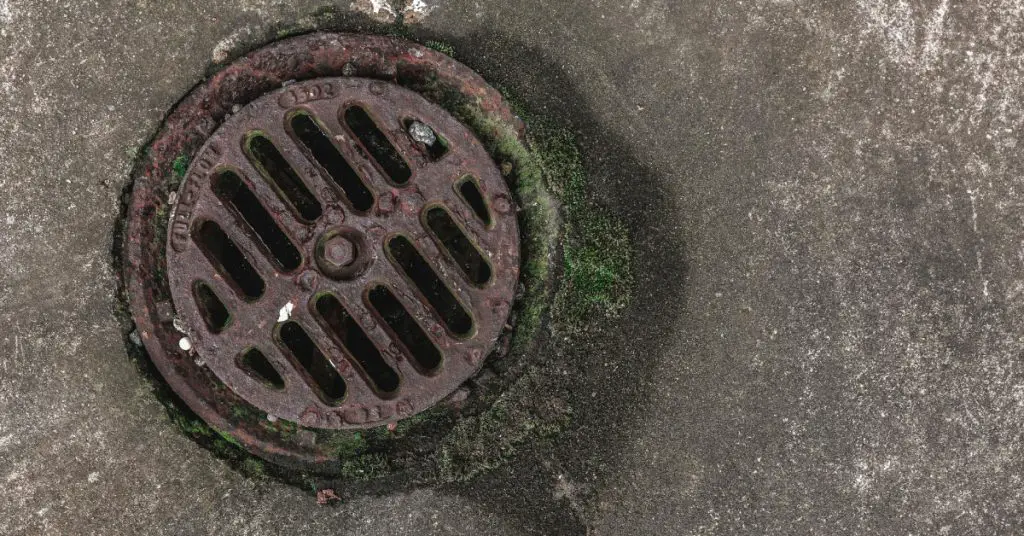
Key Takeaways:
- Clear visible debris first
- Use a plunger or drain snake for clogs
- Try baking soda and vinegar solution
- Call professionals for persistent issues
- Prevent clogs with regular maintenance
Understanding Garage Floor Drains
Garage floor drains come in two main flavors: round and trench. Round drains are the common Joe of the draining world – circular, typically found in the middle of your garage, and pretty straightforward. Trench drains, on the other hand, are the long, rectangular cousins that often hang out near garage doors or along walls.
These drains work hard to keep your garage dry by channeling water away. They’re usually made of materials like PVC, cast iron, or concrete, depending on when your home was built and local building codes.
Why Do Garage Floor Drains Clog?
Garage drains clog for various reasons:
- Debris buildup (leaves, dirt, small rocks)
- Oil and grease from vehicles
- Hair and pet fur
- Soap scum and chemical residues
- Frozen pipes in colder climates
- Root intrusion in older systems
How to Tell if Your Drain is Clogged
It doesn’t take a rocket scientist to spot a clogged drain. Look out for:
- Water pooling on your garage floor
- Slow drainage
- Funky smells
- Visible gunk around the drain
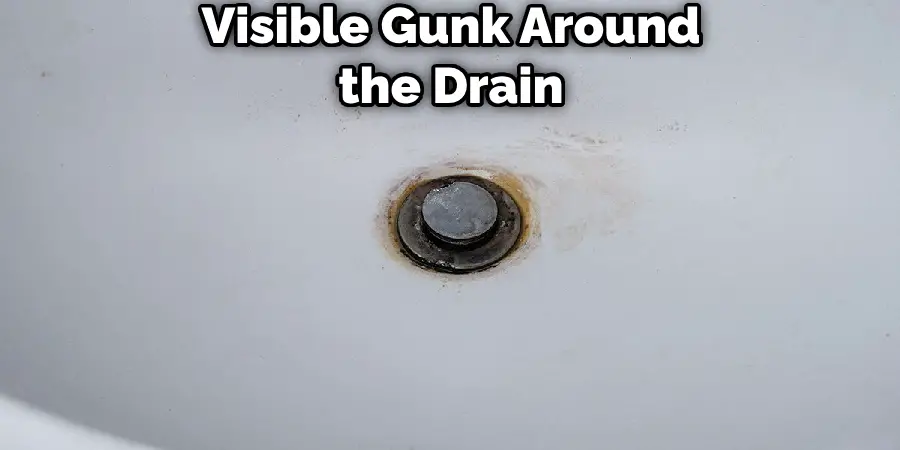
5 Effective Steps for How to Unclog a Garage Floor Drain
Here are 5 effective steps for how to unclog a garage floor drain:
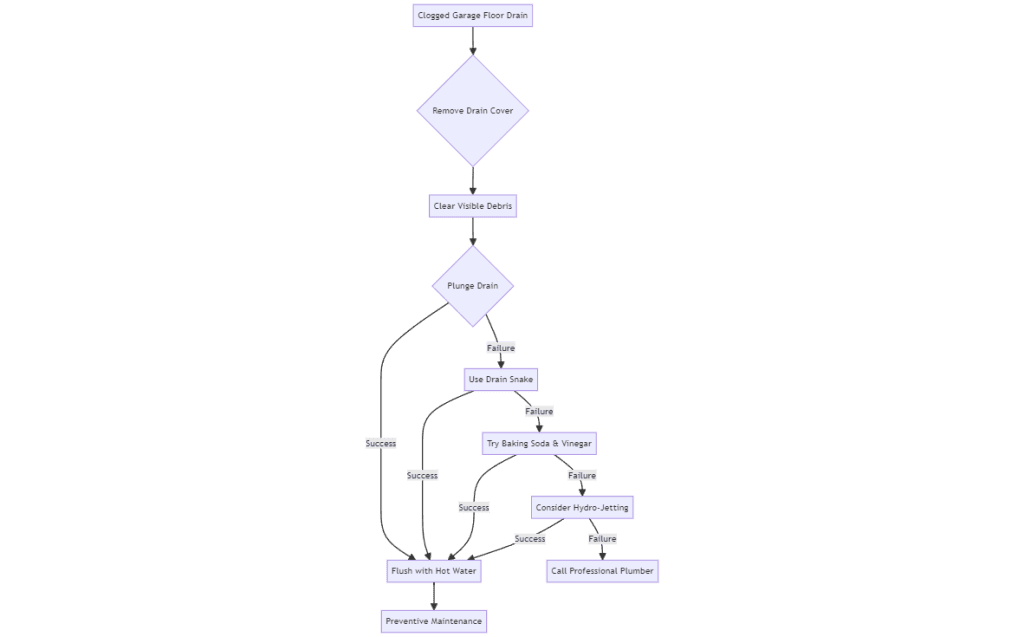
Step 1: Rolling Up Your Sleeves – Unclogging Time
Before we dive in, gather your tools:
- Gloves and goggles (safety first!)
- Plunger
- Drain snake or auger
- Bucket
- Cleaning supplies
Now, let’s get to work:
- Pop off that drain cover. It might be screwed down, so grab a screwdriver if needed.
- Clear out any visible debris. This might be gross, but it’s necessary. Use your gloved hands or a small tool to scoop out the gunk.
- It’s time to plunge. Apply some elbow grease and plunge that drain like your garage depends on it (because it does).
- If plunging doesn’t cut it, bring in the big guns – the drain snake. Feed it into the drain, turning the handle as you go. When you hit resistance, you’ve found your clog. Keep turning and pushing to break it up.
- Flush with hot water. This can help wash away any loosened debris.
- Try the baking soda and vinegar trick. Pour a cup of baking soda down the drain, followed by a cup of white vinegar. Let it fizz for 15 minutes, then flush with hot water.
Step 2: For Stubborn Clogs
If your drain is still acting up, you might need to step up your game:
- Rent a hydro-jet. This bad boy uses high-pressure water to blast away tough clogs.
- Consider a professional-grade drain cleaning machine. These can be rented from hardware stores.
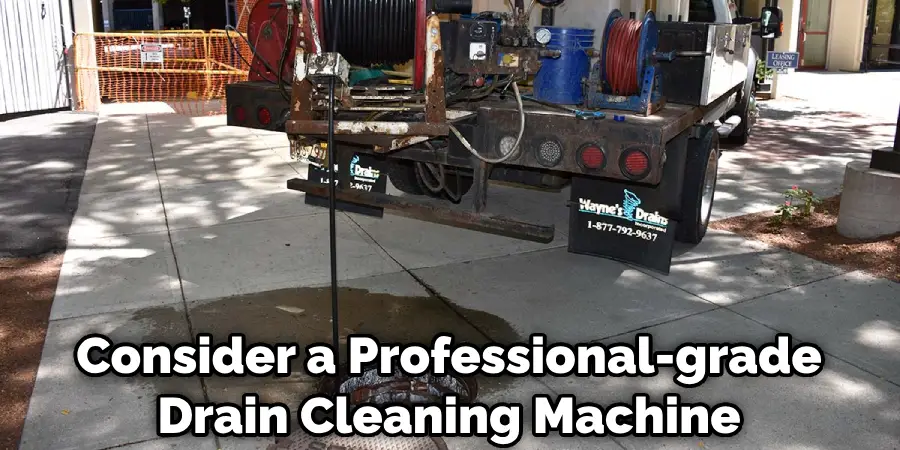
Step 3: When to Wave the White Flag
Sometimes, you need to know when to call in the pros. If you’re dealing with:
- Multiple clogged drains
- Persistent bad smells
- Slow drainage throughout your home
- Visible damage to the drain or surrounding concrete
It’s time to pick up the phone and call a plumber.
Step 4: Keeping Your Drain Happy
An ounce of prevention is worth a pound of cure, right? Here’s how to keep your drain flowing freely:
- Install a drain cover or filter to catch debris
- Clean the drain regularly (every few months should do the trick)
- Be mindful of what goes down the drain – no oil or grease!
- In winter, keep your garage heated to prevent freezing
Step 5: Green Cleaning
Let’s show Mother Nature some love. Instead of harsh chemicals, try these eco-friendly options:
- Baking soda and vinegar solution
- Enzymatic cleaners for organic blockages
- Hot water flushes

Troubleshooting Common Issues for How to Unclog a Garage Floor Drain
Frozen Drains?
Use a heat gun or hair dryer to thaw them out (carefully!).
Root Intrusion?
You might need a plumber with specialized equipment for this one.
Recurring Clogs?
It might be time to consider upgrading your drain system.
FAQs About How to Unclog a Garage Floor Drain
How Do You Unblock a Garage Drain?
To unblock a garage drain, start by removing the grate and clearing out any debris using a shovel or trowel. Pour hot water down the drain to dissolve residues and clean the walls. If necessary, manually remove any remaining sludge. Consider using additional methods such as plunging, using baking soda and vinegar, or a plumber’s snake if the initial steps don’t work. Lastly, take preventive measures to avoid future clogs, such as insulating pipes and avoiding disposal of harmful substances.
How Do You Clean a Clogged Garage Floor Drain?
If you have a clogged garage floor drain, start by inspecting and removing any visible debris using gloves and a small tool. Flush the drain with hot water to clear any remaining sediment, avoiding chemical drain cleaners. For tough clogs, try using a mixture of baking soda and vinegar followed by boiling water, or consider using a plumber’s snake. If these methods don’t work, seek professional assistance to avoid potential plumbing issues. Regular maintenance and precautions can help prevent future clogs, ensuring your garage floor drain remains clear and functional.
Why is My Garage Drain Not Draining?
A clogged garage drain can result from a blocked sewer line, frozen drain pipe, crystallized residue, debris accumulation, hair, or grease and oil buildup. To address this, start by manually removing debris and using a plunger, followed by trying a baking soda and vinegar mixture. If needed, use a plumber’s snake to break through the blockage. Afterward, inspect and flush the drain with hot water. If these DIY methods don’t work, professional plumbing services may be necessary. It’s important to note the type of garage floor drain and to avoid using chemical drain cleaners.
Why is My Garage Floor Drain Backing Up?
A garage floor drain can back up due to blockages caused by leaves, debris, grease, or freezing temperatures. Two common types of drains are round and trench floor drains, each with its own installation and clogging characteristics. To fix a clogged drain, remove the grate, clear any debris, flush with hot water, and monitor for further issues. Identifying underlying problems and using tools like a plunger or plumber’s snake can help, but if these fail, professional plumbing services may be necessary.
Wrapping It Up
Unclogging a garage floor drain isn’t rocket science, but it does require some elbow grease and patience. With these tips in your toolbox, you’re well-equipped to tackle most drain issues. Regular maintenance is key to keeping your garage dry and your drains happy. Now go forth and conquer those clogs!

